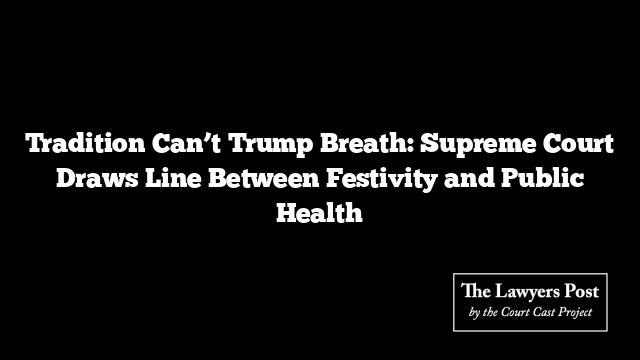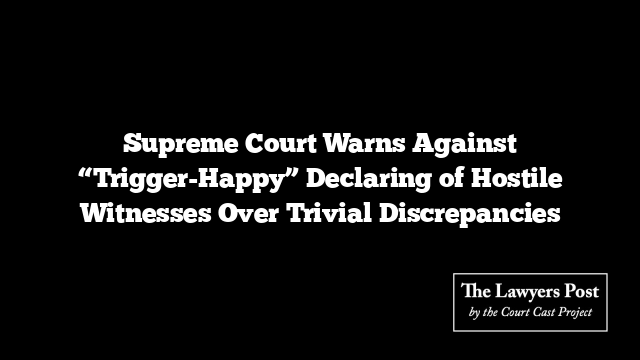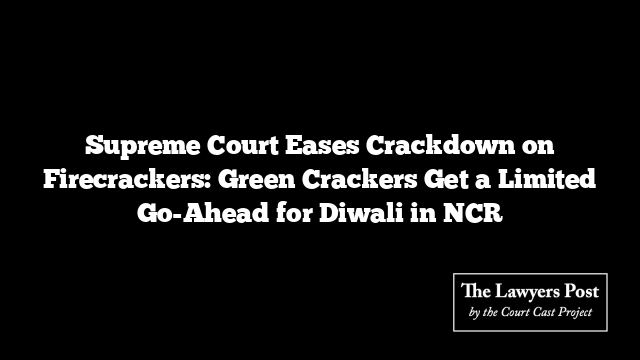The Supreme Court has drawn a sharp boundary between cultural tradition and public health, declaring that the uncontrolled use of firecrackers cannot be justified merely by invoking religion or custom. The ruling came as the Court permitted the limited sale and use of green crackers in Delhi-NCR for Diwali.
A bench led by Chief Justice BR Gavai and Justice K Vinod Chandran observed that while the bursting of crackers is woven deeply into India’s festive and religious life, the right to celebrate cannot override the right to clean air. “The commercial considerations and the festive spirit should take a back seat when it concerns the environment and health,” the bench remarked.
Under the Court’s order, green firecrackers can be sold between October 18 and October 20, and used on October 19 and 20 during restricted hours — 6 AM to 7 AM and 8 PM to 10 PM. Authorities have been told to enforce the directions strictly and prevent any use of banned crackers.
The Court acknowledged the cultural significance of firecrackers but emphasized moderation. “Festive joy cannot translate into collective harm,” the judges noted, underlining that the practice, if unchecked, threatens the health of children, the elderly, and those already battling respiratory ailments.
The bench also pointed out that despite restrictions, smuggling and illegal sales of conventional firecrackers continue each year, leading to emissions far worse than those from approved green variants.
Recognizing concerns raised by Haryana, Uttar Pradesh, and Rajasthan — where many districts fall within the NCR and are affected by the ban — the Court agreed that implementation challenges exist but made clear that public health remains non-negotiable.
“It is the rampant use by the general public, without awareness of its ill effects, that causes the problem,” the Court remarked, calling for restraint and responsibility in celebration.
The ruling, in the long-running MC Mehta v. Union of India case, once again reinforces that India’s festive traditions must coexist with a duty to safeguard its most vital resource — the air its people breathe.





